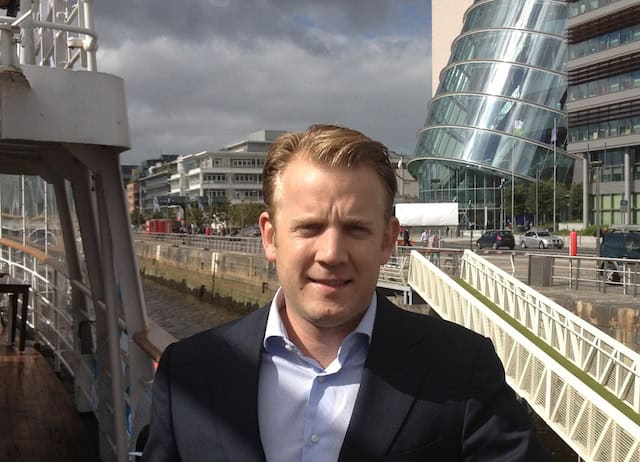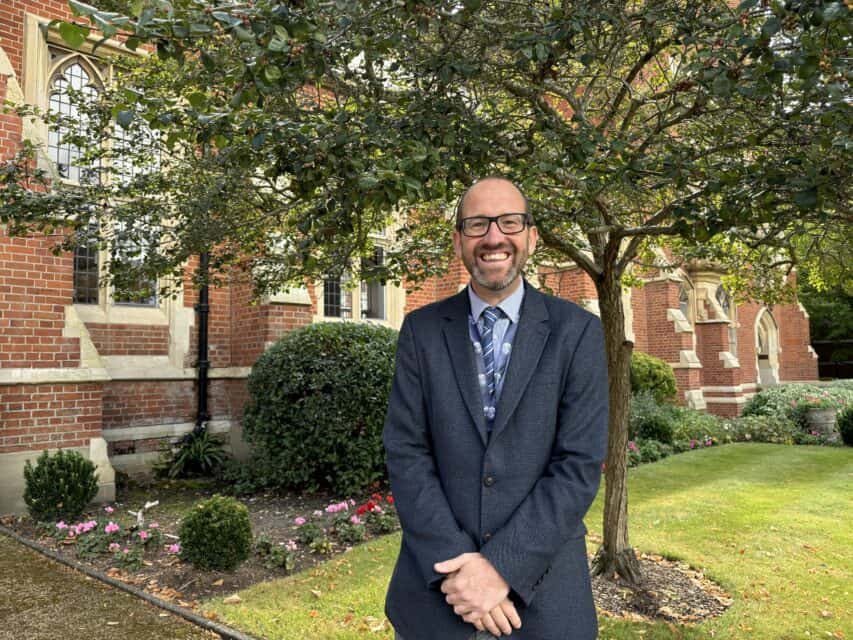is the largest directory of study abroad opportunities in Europe, listing some 1,200 institutions. CEO, Edwin van Rest, talked to Сư�洫ý about its stellar growth and new distance learning portal.
Сư�洫ý: Tell me how StudyPortals came to life.
EvR: Well, when I was studying, I went to study in Japan for my Masters degree in Osaka and had a great time there, so that’s why I learned the value of international study programmes. I came back with lots of great stories and many of my friends said “I wish I had known about the opportunity to go abroad”. At the same moment, the Bologna Process was taking effect in Continental Europe.
Сư�洫ý: What did this mean?
EvR: The biggest impact of the Bologna Process was the introduction of the Bachelors and Masters system, because it used to be that you would go pretty much five years at the same university and complete your Bachelors and Masters degree – there was no split. In 2000 there were 500 Master programmes in Continental Europe and now there are 50,000, of which about 7,000 are taught in English. There was a whole new decision for students at the end of their Bachelor phase.
I was already active in an international student association, and then within that context we launched l to give students an opportunity to compare all the options. But also we saw our universities being very eager to attract international students to those new Master programs.
Сư�洫ý: Which is the most visited site?
EvR: Masters Portal is our most popular site. I think it has 60% of the total traffic, which is going to be 2.1 million this month.
“Masters Portal has 60% of the total traffic, which is going to be 2.1 million this month”
Сư�洫ý: When you launched, which countries were represented?
EvR: Well we tried to get a good geographic spread, so if we had the top five institutions in a country, we always moved on to the next country. When we had 70 schools we reached the point of critical mass. All of a sudden students could see that they could study in Scandinavia for free, at the same time they could study in the UK for 10,000 euros.
The visitors took off in 2008 and all of a sudden we had five to 15 universities per week contacting us to join without us ever having to contact them. Now we’re at 1,200 participating institutes, that includes almost all of the European top 500 institutes.
Сư�洫ý: So what’s next for StudyPortals?
EvR: Well, we will be launching a . That is our main innovation this year. We are doing that together with the , so that includes institutions such as the Open University UK and London School of Economics.
“We’re at 1,200 participating institutes, that includes almost all of the European top 500”
Сư�洫ý: Do you have any idea how big the market is for distance learning as opposed to learning in-country?
EvR: Well, we have just started obviously but we now have 180 institutes that are participating and they are presenting 1,200 degree programs, so that would be only in the order of 5% of traditional education.
However, numbers for the program might be much higher and I’ve seen over the last three years a really growing interest in distance learning. That’s both in the setup of dedicated distance learning universities, or just in the institute, such as the University of Liverpool with its cooperation with Laureate, and that is going to happen a lot more in the UK.
There is also interest in real traditional universities offering one or two of their programmes online. Of the 180 institutes that are currently on Distance Learning Portal, 150 of them are traditional institutes.
Сư�洫ý: That’s really interesting. I also expect that there will be a huge difference in the sort of students you attract. [More>>]
EvR: Yes. Some people cannot come at all to a study centre, want to do everything online, some of them are ok with doing exams, some of them do want interaction with students, some of them really want to study “asynchronously” as it’s called, so you only study in your own time…
Сư�洫ý: Across your portals, are users mainly European or from elsewhere too?
EvR: About half of our visitors come from Europe, 25% from Asia, 15% from the Americas and then we have a little bit like 8% from Africa and 2% from Australia.
Сư�洫ý: Are you seeing any trends?
EvR: Actually we see that because of these changes in visa restrictions, especially in the UK, distance learning is becoming more of an option for students in countries where they cannot get a visa but still want to get a UK degree.
Сư�洫ý: And what’s the price comparison?
EvR: It’s not much cheaper. Well the tuition fee is not much cheaper.
“Half of our visitors come from Europe, 25% come from Asia, 15% come from the Americas”
Сư�洫ý: Really?
EvR: No. So the margin for the institute is much higher as you can imagine. Of course, there is no traveling involved, allocation order, there is no accommodation involved. Most of the time students are doing this and working.
Сư�洫ý: And how are you promoting your site in Asia or in Latin America? Is that all viral?
EvR: Most of it is viral; we only do dedicated marketing in China.
Сư�洫ý: Where do you see the big growth in demand in the future in terms of students’ source markets? Do you see any changes ahead?
EvR: I think the biggest changes will be on the delivery side, because you’ll see that Asia will start offering. So in let’s say in the last five years Continental Europe has become a player and embedded the field for talent, and I think Asia will do the same in the coming ten years. I hope that in general students will continue to go abroad and markets are going to grow. The EU has the objective to reach 20% mobility by 2020 and that is still quite a challenge.
Сư�洫ý: Key to your success?
EvR: I think one of the keys of our success is that we were lucky in the beginning to find a concept that really works. And the statistics showed us that there’s a big need for it.
Maybe it’s because we really were owning this problem ourselves when we started it, and it is really coming from the student perspective. We do a lot of testing with students and experimentation to find out what works. We try to explore and release a new version of the site every week.
“Because of visa restrictions, especially in the UK, distance learning is becoming more of an option for students”
Secondly we commit to providing the best enrolment results for universities. We work with them intensively, measuring the effects of their cooperation as accurately as possible. This is the prime reason why so many universities joined and stayed with us.
Сư�洫ý: Do you really tweak your website every week? How many staff have you got working on the platform?
EvR: Actually we have 12 in the programming team and then we have five working in our – we call it ‘student value team’ – which is doing the experiments, interviewing students, doing testing with students to see where the needs are and where we can improve.
Сư�洫ý: Where do you find student testers?
EvR: We typically use local international students. So we have students from China and from India, and from everywhere in Eindhoven, Holland [where StudyPortals is based] who use the website and feedback to us.



